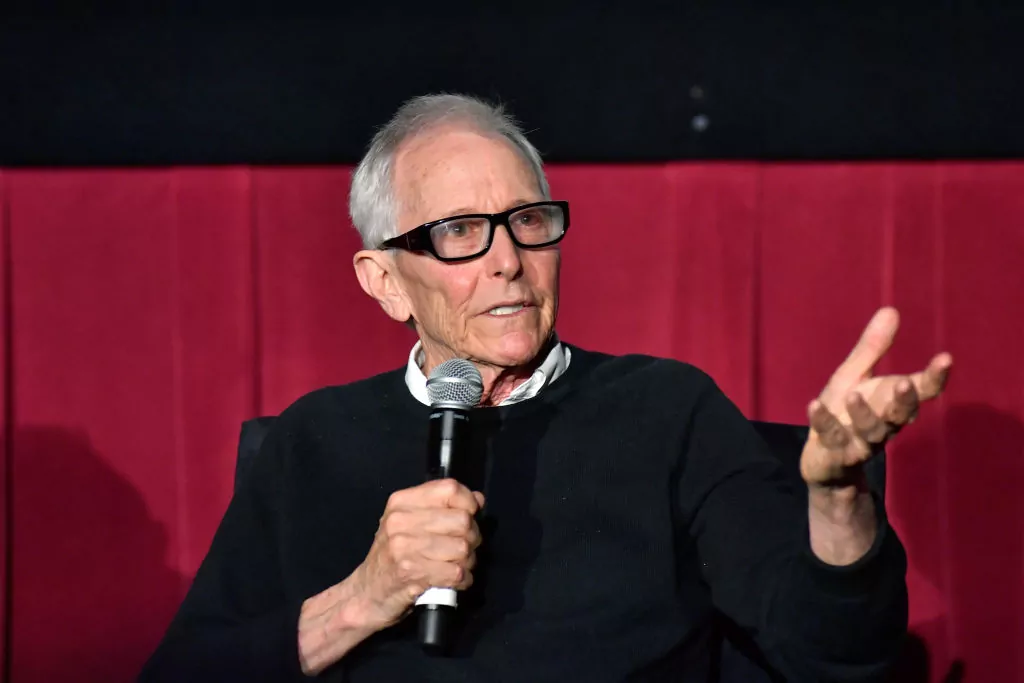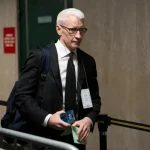
“Can you fly this plane and land it?” “Surely you can’t be serious.” “I am serious — and don’t call me Shirley.” This seriously hilarious line, which is in the running for most often-quoted movie line ever, is from the 1980 disaster movie spoof Airplane!, one of the greatest comedies of the past 50 years. Airplane! initiated a run of spoof movies that led to Hot Shots! and The Naked Gun and whose comedic DNA can be found in the Scream series, Austin Powers, and Tropic Thunder. But for many cinephiles, none of those movies can rival Airplane! itself, which contains so many memorable gags and jokes that it seems semi-miraculous that they could all be squeezed into an under-90-minute movie. If you dare to sit through all two hours and 40 minutes of Wicked (and that’s only Part 1!), you may find yourself wanting to go back to tidier, lighter, and funnier movies like Airplane! and The Naked Gun. And you may find yourself thinking about Jim Abrahams, one of the three pioneering comedic filmmakers who created them.
James Steven Abrahams, who died on Nov. 26 at the age of 80, was born on May 10, 1944, in Shorewood, Wisconsin, a suburb of Milwaukee. He and his future filmmaker collaborators, David and Jerry Zucker, knew each other from youth; all three had attended the same high school and college. After having bonded over their mutual love of humor, when the Zucker brothers were thinking about starting their own comedy troupe, they reached out to Abrahams, asking him if he could help them write material for their sketches. With Abrahams on board, they founded the Kentucky Fried Theatre Company in 1971, a kind of Second City (the famous Chicago comedy club) for Wisconsin, where they presented improv skits as well as parodies of TV shows and commercials. After experiencing some success in their home state, the following year they moved the theater to Los Angeles, hoping to catch the attention of Hollywood directors and producers. Their plan worked. During one performance, the young director John Landis (of future Animal House and Trading Places fame) was in the audience. Impressed with the trio’s comedy chops, Landis connected with Zucker, Abrahams, and Zucker — or “ZAZ,” as they’d later be known — and talked them into compiling their sketches into a movie that he’d direct. The resulting film, Kentucky Fried Movie (1977), put ZAZ squarely on the American comedy map.

Even so, they struggled to find a taker for their next project, a parody of flight disaster movies in which an angst-ridden former army pilot is called on to fly and land a plane after the pilots are knocked out of commission after having eaten spoiled fish. (Lesson: Airplane sushi is probably never a good idea, especially if you happen to be one of the plane’s pilots.) When they finally got a studio to sign on to it, Paramount did so on condition that they could fire ZAZ a week after shooting if they were unsatisfied. When the studio executives saw some of the movie’s first filmed scenes, though, they quickly relented, realizing that they had stumbled on comedic gold. Their bet on ZAZ, and ZAZ’s bet on themselves, paid off more spectacularly than any of them could have imagined. Made for only $3.5 million, Airplane! went on to make over $171 million, becoming the third highest-grossing box-office comedy of all time up to that point.
CLICK HERE TO READ MORE FROM THE WASHINGTON EXAMINER
Abrahams and the Zucker brothers declined to participate in Paramount’s sequel to Airplane!, turning their attention instead to TV, where they were developing Police Squad!, a spoof series of police procedurals. The series, which featured Leslie Nielsen as the bumbling, self-serious detective Frank Drebin, was critically successful but was canceled after only six episodes, prompting ZAZ to turn back to film. When their follow-up to Airplane!, Top Secret! (1984), misfired, and when their subsequent movie Ruthless People (1986) proved to be only mildly better, they realized that they had to rethink their approach to moviemaking. Abrahams discerned that their movies needed to be more than just “stringing a bunch of scenes together” — that their films needed solid stories and not only a series of good jokes.
The Naked Gun (1988) demonstrated that they had learned their lesson. Returning to the formula that had worked so well in Airplane!, The Naked Gun gave Nielsen’s Frank Drebin character a starring role as the inept cop who tries to foil a plot to assassinate Queen Elizabeth II. With almost as many quotable lines as Airplane! and a cast of respected dramatic actors acting seriously in a silly comedy, The Naked Gun became an instant comedy classic, cementing ZAZ as the Pepsi of spoof movie comedy next to Mel Brooks’s Coke — or the other way around, depending on your taste. Airplane! or Spaceballs? The Naked Gun or Young Frankenstein? Luckily for movie fans, we don’t have to choose. As Frank Drebin says in The Naked Gun, “You’re both right.”
Daniel Ross Goodman is a Washington Examiner contributing writer and the author, most recently, of Soloveitchik’s Children: Irving Greenberg, David Hartman, Jonathan Sacks, and the Future of Jewish Theology in America.






